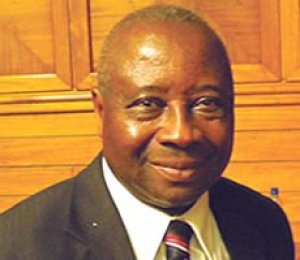Trade barriers in the ECOWAS region do not serve anyone’s purpose and must be brought down to bolster business in West Africa.
That’s according to Nana Owusu-Afari, President of the Association of Ghana Industries (AGI), speaking to B&FT at the launch of the 7th edition of the ECOWAS Trade Fair slated for October 24 to November 4 next year.
“We are calling on all the ECOWAS countries to make sure all the barriers that hinder the free movement of goods are removed, especially for goods that have been manufactured and produced in the ECOWAS area,” he said.
“Regionalism is very important. Look at what the EU has done for Europe. Therefore we in industry, especially at AGI, feel that the time has come for us to build a very strong ECOWAS in terms of trading among ourselves. We should manufacture and trade the items we requre among ourselves. That is the only way we can develop our countries.”
The ECOWAS region, he said, has a market of about 300 million people; and that if member-countries move beyond rhetoric and enact practical measures to remove trade restrictions, businesses in the sub-region will grow for the benefit of all.
Nana Owusu-Afari said the trade and industry ministers of the 17 participating countries need to be present at the fair to be told the difficulties businesses are facing in the sub-region.
The pattern of trade in ECOWAS is such that most of its countries trade more with their ‘colonial masters’ than with each other.
According to Goretti and Weisfeld (2008), only 10% of trade by ECOWAS nations is intra-regional. This, the AGI President said, is not acceptable; and he called for immediate action to reverse the trend.
“We are still not able to remove the apron-strings that tie us to our colonial masters. If we are not able to remove them, we will have a long way to go in trying to develop ECOWAS.
Let us look inwardly and trade among ourselves. Everybody should be involved in this challenging fight.”
When ECOWAS was established in 1975, it aimed among other things at the gradual elimination of customs duties and other charges of equivalent effect in respect to the importation and exportation of goods between member-states.
It also sought to abolish quantitative and administrative restrictions on trade among the member-states, while promoting the establishment of a common customs tariff and commercial policy.
The feeling among many in the sub-region, however, is that these lofty ideals have largely remained unattained. Leaders in the sub-region are accused of talk-shopping in the main, without actually committing themselves to attainment of the set goals.
“Now we want ECOWAS to be an ECOWAS of the peoples of the ECOWAS area, and therefore we are moving with all the business associations; we are taking proactive interest in the role of ECOWAS in terms of business and trade,” Nana Owusu-Afari said.
Launching the ECOWAS Trade Fair, the Deputy Minister of Trade and Industry, Dr. Joseph S. Annan, said Ghana will seek to maximise its earnings from commodities through the fair and called on other countries to do the same.
He assured the participating countries that Ghana, which has the largest trade fair facility in the sub-region, “will do all in its ability to ensure a landmark event”.
Business News of Friday, 28 September 2012
Source: thebftonline













